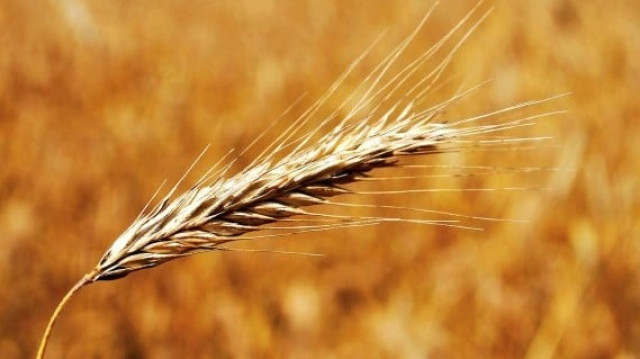World’s seventh largest wheat harvest doomed?

The newly elected government in 2008 faced wheat shortages as a lot of Pakistan’s crop had been exported or smuggled out of the country in response to high international prices. In response to the shortages, and the higher international price, the new government announced in their budget for fiscal year 2008-2009 that the government would now procure the crop at Rs 950 per 40 Kg bag, a hike of Rs 300.
But two years later, the governments procurement price has remained at Rs 950, where the international price has come down to Rs 750. Now the situation has been reversed. With a higher domestic price, the government is sitting on a surplus of wheat that it cannot store properly, nor afford to carry indefinitely. In Punjab alone, according to figures provided by the Food Department, a little under 3 million tons of wheat is left from last year’s harvest. That is only slightly less than half of what was procured last year.
“We have 131,000 bags sitting here from last year, as you can see, there is no space for this year’s crop and it has already started to come in,” says Raud Dilawar, Food Inspector at a procurement centre in Nawan Shehr, District Khanewal. We are standing in the middle of mountains of wheat bags from last years crop, stored out in the open, looking at a line of tractor trolleys bringing in this years harvest. But the real problems are those faced by the small farmers.
“I paid 4,600 rupees deposit for 43 bags, and to this day they have not given me a date when the bags will be issued,” says Falak Sher as he shows me his receipts. “I have been waiting since the 19th. I need to move this crop to plant next years cotton. I cannot afford this delay.” He is not alone. Across Sindh and Punjab, small farmers are finding out that the higher than market price of Rs 950 is perhaps not meant for them.
“The key issue here is the bardana,” says Ibrahim Mughal, President of Agricouncil, a group that tracks problems faced by small farmers, referring to the bags the wheat must be packed in before it can be sold to the government. At the procurement centres, the bags are the biggest issue. “They give all the bags to those with influence, and the small farmers like us are left with nothing,” says Yusuf Mehtla, a small farmer at the main procurement centre in Khanewal.
Ibrahim Mughal claims his people in Rajanpur even intercepted a vehicle carrying thousands of bags to the estate of a large landowner, although the Food Department denies this. They argue the movement was routine, the bags were being transported to a storage facility at a procurement centre. “A good support price for wheat is essential to correct the unfair terms of trade that rural producers have historically faced compared to urban consumers,” says Sartaj Aziz, former finance minister and agriculture expert.
“But its also important to have sufficient infrastructure in place for storing the wheat crop. If the government does not have enough storage space, it can look to the flour millers for it.” But others say infrastructure is not enough. “The process of procurement needs to be better managed so the small farmer can equally benefit from the support price,” says Mehmud Nawaz Shah, Secretary General of the Sindh Abadgar Board, based out of Hyderabad.
According to him, better management of the drive means “arranging funds at the district level, and having transparency in the procurement process itself, involving the stakeholders. And also storage. Lack of proper storage means much of the crop is wasted, in some cases the wastage is as high as 70-80 per cent!” A visit to government procurement centres highlights both these problems.
At all the centres, we saw huge mountains of wheat from last years harvest, and food department officials concerned about lack of space for this years harvest. And we were swarmed by crowds of small farmers saying they were unable to obtain the bags in which the wheat must be packed before the government will procure it.



















COMMENTS
Comments are moderated and generally will be posted if they are on-topic and not abusive.
For more information, please see our Comments FAQ